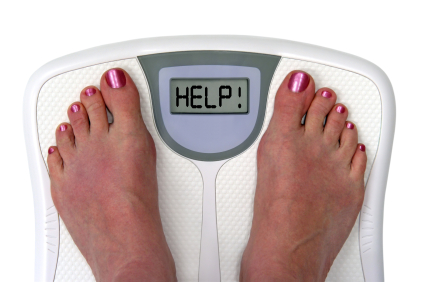 Sixty-two percent of Americans say they weigh more than they would like to, but while the majority would like to lose weight, only about 27 percent are seriously attempting to do so.[i]
Sixty-two percent of Americans say they weigh more than they would like to, but while the majority would like to lose weight, only about 27 percent are seriously attempting to do so.[i]
Perhaps this is because so many people have been burned with weight-loss attempts in the past … nearly three-quarters of women have attempted to lose weight at one point or another … repeatedly. The average number of weight-loss attempts for U.S. women is seven, while for men it’s closer to four.[ii] Clearly, we’re trying to lose weight again and again because something is not working … such as relying on the bad weight loss approaches below.
The best way to lose weight is actually an approach you may not have heard of before … but we’ll get to that at the end of the article, after revealing these weight loss approaches to avoid …
10 Bad Weight Loss Approaches to Avoid
10. Starving Yourself With a Very Low-Calorie Diet
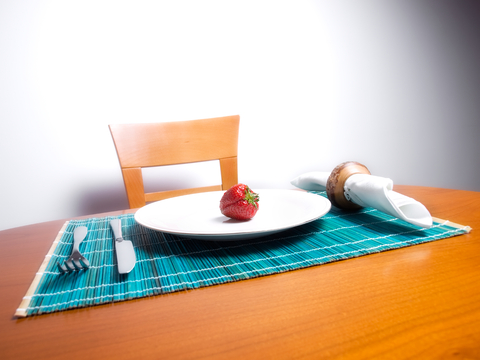 Drastically cutting down your caloric intake using a crash diet is not only difficult to maintain (leading many people to quickly rebel by consuming copious quantities of candy bars and pizza) but it often leads to significant weight regain once you start eating normally again.
Drastically cutting down your caloric intake using a crash diet is not only difficult to maintain (leading many people to quickly rebel by consuming copious quantities of candy bars and pizza) but it often leads to significant weight regain once you start eating normally again.
9. Dieting in General
Anytime you lose weight after dieting, it leads to biological changes in your body that can actually encourage you to regain the weight. Specifically, levels of the hormone leptin, which is involved in feelings of satiation, fall, while the hormone ghrelin, which tells your body it’s hungry, rises. These altered hormone levels, which can make you feel hungrier than you did before, persist for more than a year after dieting-induced weight loss![iii]
8. Making Yourself Throw Up
Self-induced vomiting is used by children as young as 10 years old as a form of do-it-yourself weight loss.[iv] Very bad idea, as not only is this a sign of eating disorders such as bulimia, anorexia and binge eating, but chronic vomiting causes many serious health conditions, including chronic inflammation of the esophagus, irregular menstrual cycles, dental erosion, esophageal tears, burst blood vessels in your eyes, dehydration, and potassium depletion that can lead to fatal disturbances in heart rhythm.
7. Laxatives
Some people believe taking laxatives can help them eat whatever they want without gaining weight. This is not true, as most of the calories are already absorbed from your food before it reaches the end of your intestinal tract, so using laxatives is not an effective weight loss strategy. Plus, long-term use of laxatives can lead to dehydration, potassium depletion, or an unresponsive bowel. Chronic use can also make your body dependent on laxatives, so that when they are stopped constipation, gas and bloating may occur.
6. Diuretics
Often referred to as “water pills,” diuretics work by ridding your body of water. While this may make you feel less bloated and more “trim,” the benefits are deceiving because it’s only water weight, not real weight loss. Long-term use of these pills is dangerous and can cause kidney damage and kidney failure, and electrolyte or salt imbalances that can cause a fatal disturbance to your heart rhythm.
The various over-the-counter and prescription diet pills were never really meant to be a long-term solution to weight loss, as the weight typically comes right back when you stop the treatment. Plus, in some cases the pills only lead to a weight loss of 4.5 pounds (up to about 22).
There’s a reason why some of these medications are not even approved for long-term use, and that’s because they come with a variety of side effects — from the mildly annoying cramping, gas and diarrhea to reduced absorption of vitamins and minerals and, in a more serious turn, stimulation of your sympathetic nervous system, which can increase your blood pressure, heart rate and risk of heart attack.[v]
4. A Low-Fat Diet
In case you haven’t heard, cutting fat from your diet is not likely to help you lose weight — cutting carbs will, however. In one study, those following a low-fat diet took nearly twice as long to lose 10 pounds as those following a low-carb diet (70 days versus 45 days, respectively).[vi] Then there was the Women’s Health Initiative study, which involved half of nearly 50,000 women following a low-fat diet or a usual diet — and virtually no difference in weight was detected even after eight years on the low-fat diet![vii]
3. Eating Artificial Sweeteners
Artificial sweeteners have been linked to health problems ranging from cancer to brain damage to kidney problems — but did you know they can also make you fat? That’s right — eating them to lose weight is probably one of the biggest myths out there!
For instance, studies have linked artificial sweeteners to increased carb cravings, and they’re known to stimulate appetite and fat storage. Is it any wonder, then, that research has shown rats that consume artificial sweeteners consume more calories, gain more weight and put on more body fat than rats that don’t?[viii]
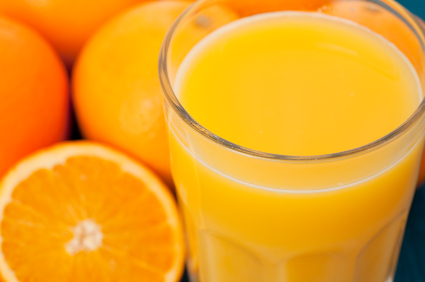 2. Eating “Healthy” Fructose-Rich Sweeteners
2. Eating “Healthy” Fructose-Rich Sweeteners
You may be aware that high-fructose corn syrup (HFCS) is a dietary no-no, but fructose is hidden in places you wouldn’t expect, like “healthy” agave sweeteners and fruit juice. What’s so bad about fructose?
When you consume food and drinks made with regular old-fashioned cane sugar or beet sugar you get a perfectly balanced 50/50 match of fructose and glucose. This means every fructose molecule is bound to a glucose molecule and must go through an extra metabolic step before it becomes fuel for your body.
When you eat a sugar that has more fructose than glucose, those extra fructose molecules go straight to your gut to be stored as extra fat.
In fact, Princeton University researchers found that long-term consumption of HFCS in rats leads to abnormal increases in body fat, especially in the abdomen, along with a rise in circulating blood fats called triglycerides.[ix] The HFCS rats gained 48% more weight compared to those fed a normal diet! As mentioned, it’s not only HFCS that’s high in fructose; many sweeteners masquerading as health foods are too.
1. Weight Loss Surgery
Weight loss surgery such as gastric banding and gastric bypass is on the rise, but did you know that nearly 40 percent (that’s close to half) of weight-loss surgery patients face serious side effects like malnutrition, infection, liver failure or sometimes death? Gastric banding is so hit or miss that one in three patients experience band erosion and close to half must have the bands removed (the surgery has a re-operation rate of 60 percent!).[x]
In order to qualify for weight loss surgery, patients typically have to commit to dietary and lifestyle modifications, and many must lose weight prior to the surgery. If you can lose weight, and make diet and exercise changes, for the surgery, you can do it to lose weight without it …
What’s the Fastest Way to Lose Weight Permanently?
Did you know your body’s natural production of youth hormones (HGH, or human growth hormone) begins to steadily decline by the time you reach your early 30s? Around this same time, you probably find you “can’t eat the way you used to,” and losing weight becomes much harder. As your HGH declines, all of the following occurs:
- Your metabolism slows down
- You pack on adipose tissue (FAT)
- Your organs shrivel
- Your aerobic activity decreases
- Your muscles shrink
Research shows that men who supplemented with HGH for six months had a 14.4 percent reduction in fat, and a nearly 9 percent increase in lean body mass,[xi] which is why you might be interested in learning about ThinMist, which is NOT a synthetic form of HGH, but a way to increase your body’s production of this youth hormone naturally!
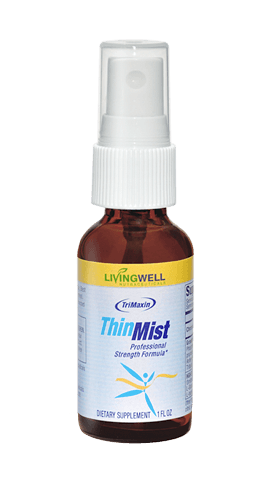 ThinMistâ„¢ is a 100% natural way to safely boost your pituitary gland’s NATURAL release of HGH ‘youth hormones’… using a complex series of 7 known ‘HGH precursors.’
You simply take ThinMistâ„¢ three times each day by spraying it under your tongue, and as the ingredients slowly build up in your system, your body NATURALLY begins releasing more youthful levels of HGH, one of your body’s most powerful fat burners.
ThinMistâ„¢ is a 100% natural way to safely boost your pituitary gland’s NATURAL release of HGH ‘youth hormones’… using a complex series of 7 known ‘HGH precursors.’
You simply take ThinMistâ„¢ three times each day by spraying it under your tongue, and as the ingredients slowly build up in your system, your body NATURALLY begins releasing more youthful levels of HGH, one of your body’s most powerful fat burners.
[vi] Study presented at the American College of Sports Medicine annual meeting, June 3, 2012, Denver, CO

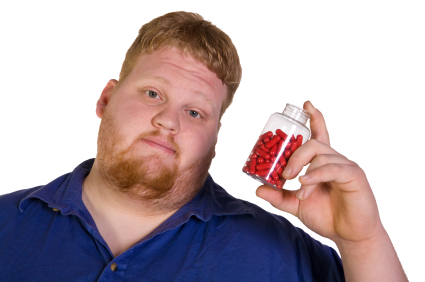

I don’t think I’d be able to take this as I have very high blood pressure (230/90)
and most (all?) of these types of pills contain ingredients that would be very
dangerous for me, i.e. Phenylalinine. Since beginning this comment I looked on
the net the likely effects of phenylalanine and there doesn’t seem any danger in
this product, however I used to take a vitamin tonic which contained this and my
blood pressure seemed to go even higher. I have what’s called “essential” high
blood pressure, which is annoying because though certain medications (doctor’s)
bring the lower rate down, the top rate still stays very high. I am so sick of these
medications because (a) they don’t bring the pressure down and (b) they have
advertse side effects, i.e. my muscles are shot so that I find it quite difficult to walk
any distance at all (which precludes any type of exercise). I have taken a number
of “natural” medications but they don’t seem to have much effect at all. Sorry for
this long letter.
Diane –
Here is a challenge for you.. Cut your processed sugars out of your diet along with breads, pasta, rice, and white potatoes. No desserts, no candy, no sugared beverages. Eat a healthy balance of fresh vegetables, fruit, meat, don’t skimp on fat. You can eat nuts, popcorn, oats, and low fat dairy. Do this for about 4 weeks, measuring calories in. Exercise by taking short walks around the block just to get moving. The weight will come off!!!
Most people that think they can’t lose weight have just given up trying and don’t realize how badly they are eating and not even exercising. I know this personally! I began controlling my diet and doing just what little exercise I could about 9 months ago. Today I weigh 50 pounds less, am tapering off of medicines, and enjoying better health! Oh yeah, I left something out of my story, I have a herniated disc at L4/L5 and couldn’t stand up or walk in April 2008. I am recovering every day!
The key, stop making excuses and don’t give up!